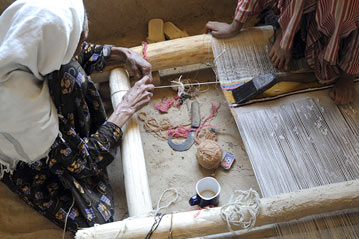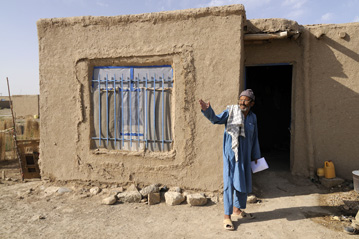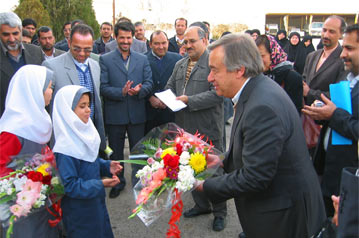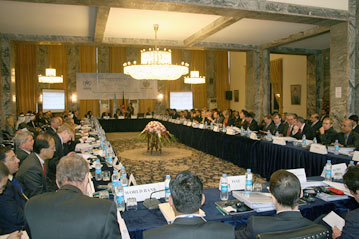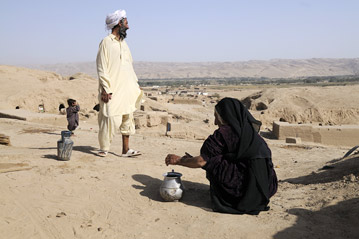Iran: agreement on Afghan repatriation
Iran: agreement on Afghan repatriation
UNHCR and the Iranian government have agreed on ways of repatriating an estimated 1.4 million Afghan refugees remaining in Iran, in a move designed to better organize the return process and to put an end to forcible deportations of those who would be in jeopardy if sent back to Afghanistan. An estimated 90,000 people have gone back since Iran abandoned its open-door policy toward Afghans in late 1998, citing public pressure and a worsening economic situation. Fifteen thousand people have returned voluntarily under a UNHCR programme but most have been sent back.
The current agreement, which comes into force in April, gives Afghan refugees without proper documents six months to come forward and either apply for return or make a case for remaining in Iran. Under the agreement, signed in Teheran last week by the UNHCR representative and the head of Iran's Bureau for Aliens and Foreign Immigrants Affairs, UNHCR will be given a say in determining whether those coming forward will return or will be allowed to remain. UNHCR will also help to establish transit camps in several provinces to register the refugees and to handle their cases. Those returning will receive food and cash grants.


